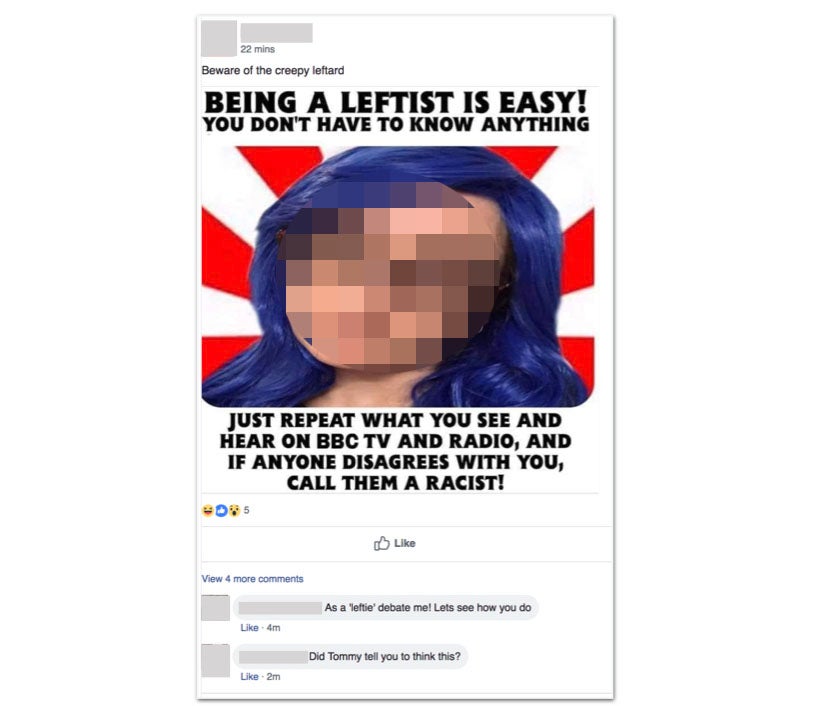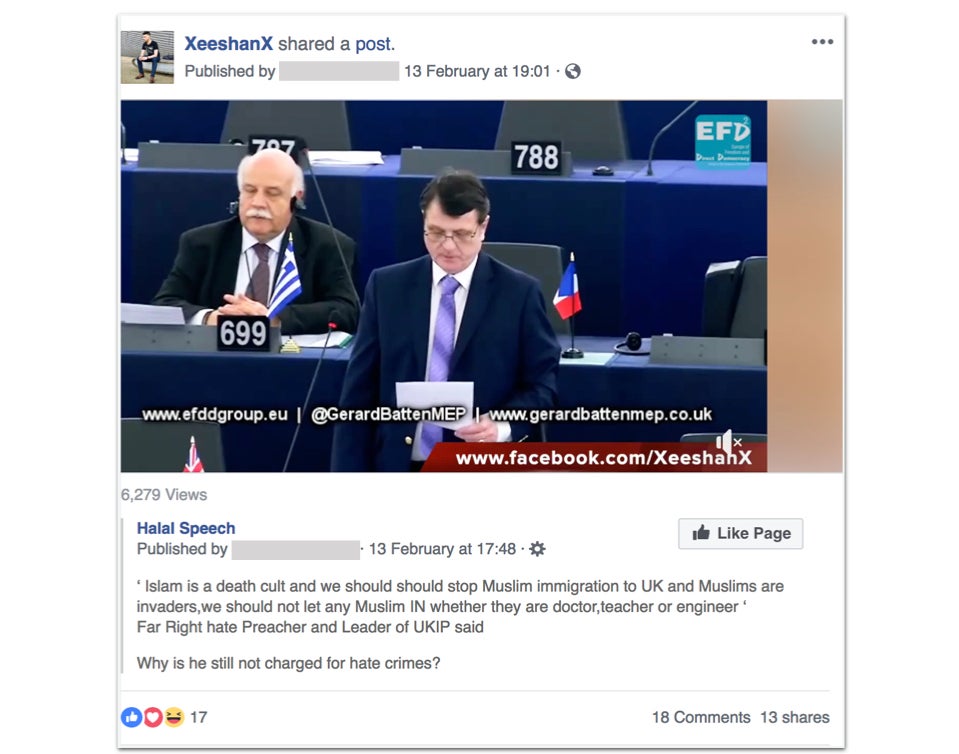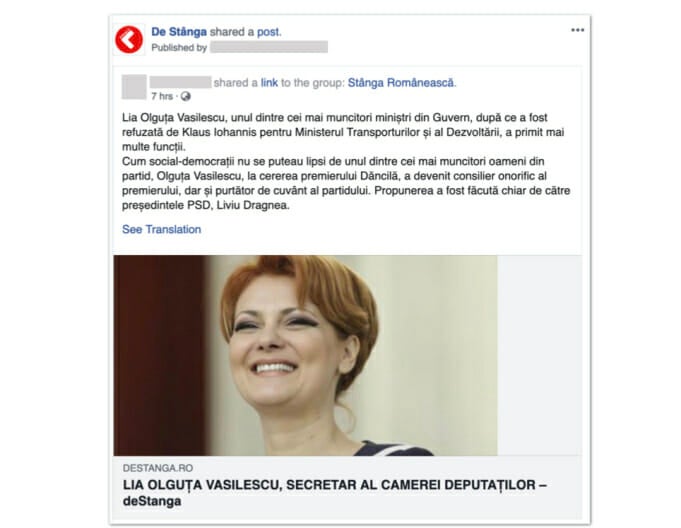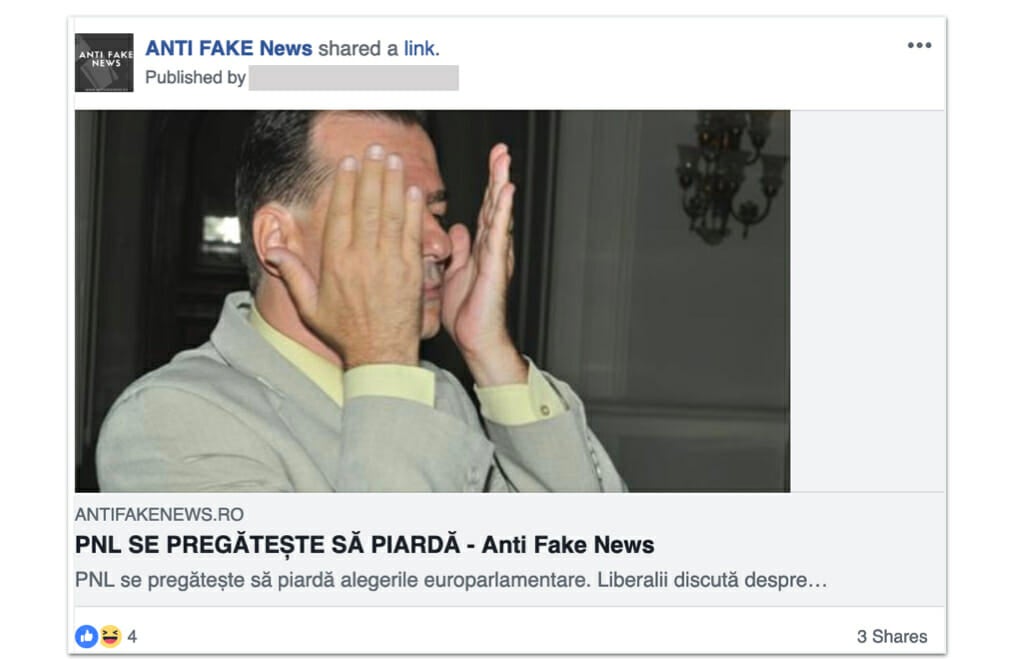Facebook has deleted more than 150 profiles and pages spreading misinformation and “coordinated inauthentic behavior” this week in the U.K. and Romania. While in the U.K. posts tended to share polarizing content, the ones in Romania showed “activity … linked to an individual associated with the PSD,” or the Social Democrat Party, currently ruling the country.
In a post published on Thursday, Nathaniel Gleicher, Head of Cybersecurity Policy at Facebook wrote, “We are constantly working to detect and stop this type of activity because we don’t want our services to be used to manipulate people,” according to CNBC.

In the U.K., pages were related to both far-right movements and anti-far-right activists. Facebook has taken down 137 Facebook and Instagram accounts in the U.K. which “engaged in hate speech and spread divisive comments on both sides of the political spectrum.” Some posts attacked leftists, saying they “don’t have to know anything,” while others targeted right-wing politicians for their views. The targeted accounts apparently changed names regularly, but despite the misrepresentation of their identities, Facebook determined the accounts were connected.

In Romania, Facebook identified similar—but separate—patterns of pages spreading divisive in order to influence public opinion. In the Romanian case, Facebook linked some of the efforts to one political entity—the PSD, which is the majority party in the leading coalition and the political party of the Prime Minister, Viorica Dăncilă.
“More to come” in Romania
When the news came out in Romania, it made headlines nationally but came as no surprise.
Times New Roman, a satirical news site in Romania, published a story that roughly translates as “PSD forced to handle 99,996 pages of propaganda after Facebook closes four of them.” Ana Maria Luca, a freelance reporter covering politics for Balkan Insight, said the misinformation problem is well-known in the country.
Internally, the country has been unstable, with four different prime ministers in the past four years —mainly due to infighting within the PSD.

One post, from the account De Stanga, which translates to ‘The Left,” reads:
Lia Olguta Vasilescu, one of the most hard-working ministers in the Government, after being denied by Klaus Iohannis for the Ministry of Transport and Development, received several other functions. As the social democrats could not go without one of the most hard-working people in the party, Olguta Vasilescu, at the request of Prime Minister Dancila, became an honorary advisor to the Prime Minister, but also the party spokeswoman. The proposal was made by the PSD President himself, Liviu Dragnea.
The posts identified by Facebook tended to benefit the PSD. One post titled, “PNL is preparing to lose the European election,” referring to upcoming European Parliament elections. The current Romanian President, Klaus Iohannis, is affiliated with the PNL, or National Liberal Party, which is the second-largest political party in Parliament and leans conservative.

The Digital Forensic Research Lab at the Atlantic Council took a closer look at the data found by Facebook, and confirmed they were politically motivated, saying the posts, “promoted highly biased content in favor of Romania’s ruling Social Democratic Party (PSD) or denigrated politicians of the opposition.” While the Facebook post said some groups were related to individuals linked to the PSD, the Atlantic Council did not find any direct link.
In January, Facebook took down more than 300 Kremlin-linked accounts, some of them administered in Romania. Facebook told the Daily Dot in an email that the accounts deleted last week are not related to the ones taken down in January.
Radu Magdin, a political analyst who has worked in communications in Romanian politics told the Daily Dot via LinkedIn messenger, “It’s important that Facebook starts looking into the political pre-campaign environment in Eastern Europe, in a key year for Europe.”
A Facebook spokesperson told the Daily Dot via email, “We’re focused on uncovering this kind of inauthentic behavior, particularly in light of elections in many countries around the world this year.”
Like in many other European countries, according to Luca, manipulative accounts in Romania target voters in rural areas, and spread information that tends to foster nationalism and be anti-Europe and anti-establishment.
Magdin added, “European elections are an important test for how the continent manages to work with U.S. tech companies to help secure elections and clean the online environment from fake noise.”
“Russia is trying to find cracks,” Luca said. “Romania has a strong anti-Russian history, so the Kremlin is trying to find cracks to exploit group[s] of people with anti-EU, anti-NATO, anti foreign interventionist sentiments.” Because of the Soviet occupation in the 1940s and 1950s, anti-Russia sentiment is strong in Romania. “They know people in Romania will never say ‘I love Putin’ [but will] say things like ‘we hate the EU’ if they’re given some reasons to do so.”
But, Luca notes, much more needs to be done to combat the social media problem in the country, and this is probably just the tip of the iceberg.
“There will be more,” she said.
H/T CNBC
READ MORE:
- Facebook reportedly knew kids were blowing parents’ money—now senators want answers
- Facebook kills LOL meme project before embarrassing itself
- Senators demand answers from Facebook about Project Atlas
- How to unsend an embarrassing message in Facebook Messenger


